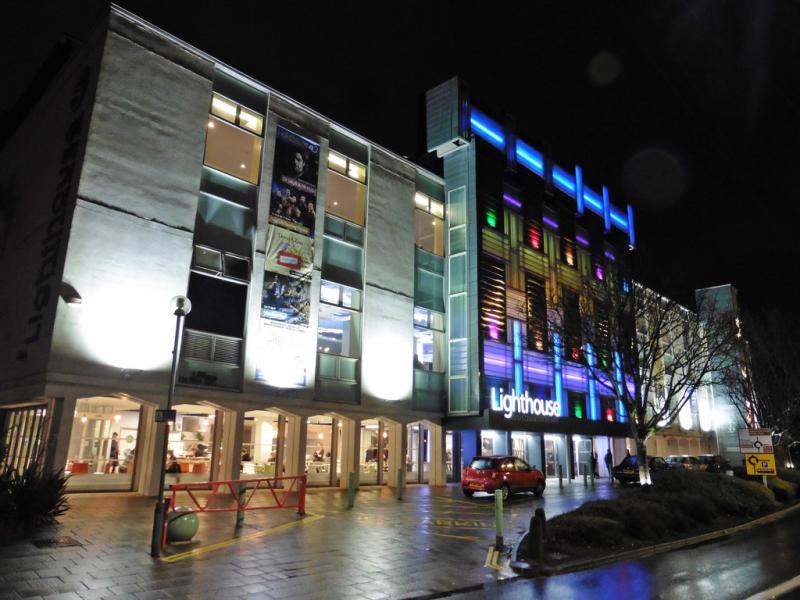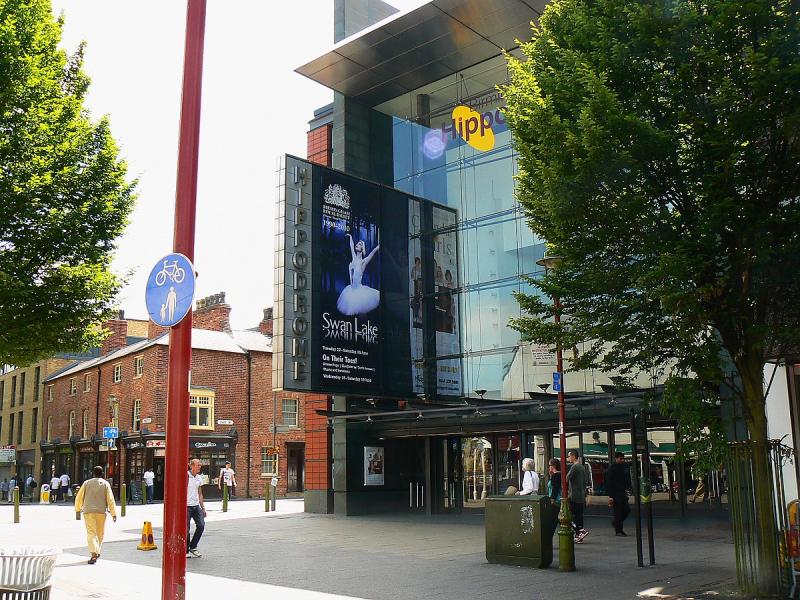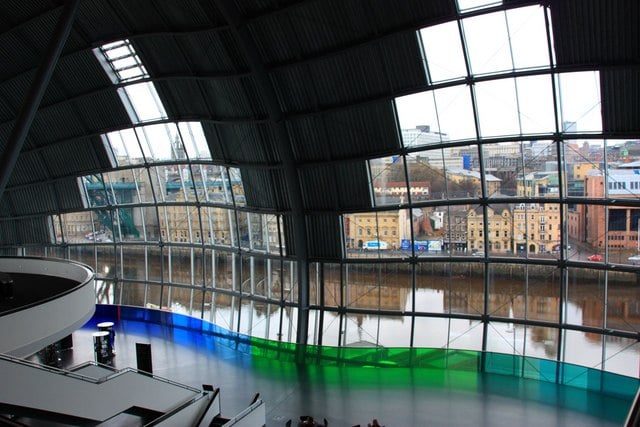
Photo: Adnan Mistry
The long read: Arts leaders look ahead to 2023
For this long read marking the turn of the year, Robin Cantrill-Fenwick asked CEOs and Executive Directors of arts organisations across the UK to answer one question.
I suspect all of us who work in the arts have learned to be cautious about throwing open our arms to welcome in 2023 with the certainty that the 12 months ahead will be better and kinder to us than the year we have left behind. But might there be grounds for hope?
The arts in the UK are a tightly-interwoven ecosystem. How that ecosystem might best be productively and equitably structured and managed is hotly debated. For those celebrating the start of a new year, I wanted to take the temperature of some of the leaders of that ecosystem. I asked one question: “What is your organisation’s single biggest priority in 2023?”. Here’s what they said.
Soaring costs
Sarah Gee is Chief Executive of East London’s Spitalfields Music which delivers an annual festival and year-round learning and participation programme. Sarah strikingly sets the context: “We always thought this financial year – post-lockdown – would be the hardest with emergency funding ending. But we didn’t anticipate war in Europe, the UK economy being crashed by our government, nor the levels of inflation we’re experiencing. All of these impact sources of funding we’ve relied on in the past. Schools cannot afford to be part of projects; donors are cancelling direct debits; and trusts are concentrating on projects that are important but will not necessarily help cover the costs of commissioning new art and keeping the lights on.”
Sarah is not defeated – and we’ll return to Spitalfields. This context is recognised by most leaders, with rising core costs posing the greatest challenge in 2023. So, might our squeezed arts organisations lose focus on reshaping the industry?
 Photo: James Berry for Spitalfields Music
Photo: James Berry for Spitalfields Music
For James Mackenzie-Blackman, Chief Executive and Executive Producer at Theatre Royal Plymouth (TRP), the “single biggest priority in 2023 will be to recruit a diverse team of artists to help shape our creative future. If you’d asked for two priorities, I would have paired this one with fiscal and financial stability against the backdrop of immensely challenging operating conditions. But the two go hand-in-hand. If we find the right people to lead TRP creatively then financial stability will follow”.
There’s a general recognition the pressures are being felt by everyone and solutions lie in people working both creatively, and collaboratively. Michael Ockwell is Chief Executive and Creative Director of Mayflower Theatre and MAST Mayflower Studios in Southampton, both of which extensively present touring shows. Michael echoed a prominent message about touring from last year’s UK Theatre Symposium when he said: “I hope we can stabilise the touring ecology. We could achieve this in a more collegiate way if people would pick up the phone and talk to each other as opposed to relying on impersonal emails. Our business is built on relationships, and it feels that venue/producer relations are at the most adversarial at this moment.”
He continued with a plea for producers and venues to work together: “I rely on great product appearing on my stages and we have developed a loyal audience to our theatre. We need to remember we are in the same game – providing entertainment. We need each other more than ever.”
At such a pressured time, the emotional toll on arts leaders can be significant. But Sarah Gee at Spitalfields Festival is hopeful: “I don’t feel down because I wake up most mornings thinking ‘There has to be a better way’. It’s hugely challenging and takes more energy and focus than ever. We all entered 2022 rather exhausted and broken and the year was very tough, so I hope people are able to have a break and start 2023 recharged. It sounds hackneyed but supporting people – freelancers, employees, friends in the sector – is so important. Please, let’s look out for each other, and work together to get through these challenging times.”

Lighthouse, Poole. Photo: Roger Cornfoot
Elspeth McBain is CEO of Lighthouse, Poole’s Centre for the Arts, with nearly 1,500 seats in the concert hall, a mid-scale theatre with more than 660 seats, together with a studio theatre and cinema. Elspeth neatly summarises the challenges and echoes Sarah in urging us not to lose sight of the people who work in our organisations.
“My main priority is to continue the momentum we have maintained through pandemic. There are many obstacles but the amazing response from our audiences has reinforced how vital it is that we find solutions – be it rising inflation, unbelievable energy bills or staff recruitment. Ensuring our team is supported and motivated is key to doing that.”
Operatic arrears?
Since ACE’s National Portfolio announcement last November, opera has never been far from the headlines. Chief Executive of the Royal Opera House (ROH), Alex Beard reflected on Covent Garden and ROH’s audiences: “Despite the growing financial challenges ahead, we are focused on growing audiences. We will be welcoming back those familiar with us, but also encouraging the next generation of theatre lovers to experience the very best of ballet and opera – themselves the product of centuries of artistic experiment and investment.
“We will do so with the world's leading artists, performed at the very highest level and to a scale which brings together the whole range and potential of modern stagecraft to explore the emotions and forces that define us in our common humanity.”
With a nod to recent headlines about opera as an artform, Alex continues: “We will also passionately state the case for our industry, which is envied globally, which encourages tourism and inward investment, and projects the UK's creativity and excellence to the world like nothing else can.”

Opera North's production of Kiss Me Kate. Photo: Opera North
David Collins, currently Executive Director of Opera North, will be making a short trip across Leeds to lead Northern Ballet later this year, giving him a perspective on these closely connected artforms. As is the case for many, 2023 starts with ACE compliance: “Moving from one company to another, I’m fortunate to be working with two teams planning for the year ahead, including an early deadline for the re-submission of activity plans to ACE in January.”
David offers a touring perspective on familiar challenges when he says: “Opera North and Northern Ballet are both touring companies, built around artistic ensembles of orchestra, chorus and dancers. As such, the mounting challenges of unpredictable audience booking behaviour, costs related to touring and maintaining buildings – as well as attempting to keep pace with the cost-of-living crisis for staff – are very real. The key objective will be to evolve our business models to be financially sustainable over the three-year funding round, while allowing room for artistic ambition and freedom to take creative risks, as we extend our audience reach and engagement."
Priority places
There’s been much talk of priority places and, for leaders whose organisations are at the heart of a local community, contributing to a sense of place is a priority. Stephanie Sirr is Chief Executive of Nottingham Playhouse: “The biggest single priority is ensuring our many and diverse communities can access the wide range of performances and participatory activities we offer. We know what theatre offers – regional theatres in particular – has never been more needed nor more appreciated. But the cost of producing – which is our stock in trade – is incredibly inflated. Consolidating post-pandemic audience development, ensuring a night out that exceeds expectations on quality and value, keeping a sharp eye on demographics particularly hit by the cost-of-living crisis – hopefully this will ensure our responsibilities to audiences are reflected in maintaining them.”
 Birmingham Hippodrome. Photo: Brian Robert Marshall
Birmingham Hippodrome. Photo: Brian Robert Marshall
Stephanie is co-President of UK Theatre with Birmingham Hippodrome’s Artistic Director and CEO Jon Gilchrist. Jon agrees that 2023 is about place: “I would say the biggest priority is Birmingham, serving the youngest, most diverse city in the country and riding the crest of a cultural wave following an extraordinary Commonwealth Games year. But, to quote the West Midlands’ most notable writer: ‘What is the city, but the people?’ It’s vital we work with partners in the region to respond to the uncertain economic climate. We must support our region’s growing artistic community and ensure our programmes are accessible to a wide range of people.”
Heading further north, the placemaking baton is picked up by Tom Bird, Chief Executive of York Theatre Royal who will be moving to Sheffield Theatres later this year. Tom said: “In 2023, at York Theatre Royal our main aim is to entwine the organisation with the needs of our city. All our work will be made in York, by York people and will be directly relevant to the people of the city. This focus on place is the strategy we’ve adopted since re-opening in 2021. It’s allowing us to rebuild our audience and to bring in new audiences and participants as we recover from the effects of the pandemic.”
Continuing up the A1, we arrive at the architecturally stunning Sage Gateshead on the banks of the River Tyne. Managing Director Abigail Pogson leads an organisation which is home to the Royal Northern Sinfonia, acts as a centre for traditional and folk music and is a popular touring destination for a wide range of contemporary musicians.
 Sage Gateshead. Photo: Paul Buckingham
Sage Gateshead. Photo: Paul Buckingham
“Our single top priority for 2023 is to serve as many people as possible in our region through this challenging time. We hope to do this by contributing to wellbeing, by enabling people to make joyful memories and by supporting skills and education. This year the charity will have a new identity and start a new era. Music and culture will have a huge role to play in building a positive future for our region.”
Many organisations will be reliant on technology to deepen their audience relationships, something Andrew Recinos, President and CEO of Tessitura is keenly aware of. Tessitura provide CRM, ticketing and fundraising solutions and Andrew regularly speaks to arts leaders globally: “Our single biggest objective for 2023 is to strengthen our digital infrastructure which underpins so many of the world’s arts and culture organisations. As our sector struggles to regain its footing, Tessitura has a critical role in providing technology that bolsters and streamlines ticket sales, philanthropy and customer service. With that in mind, last year we more than doubled the size of our development team. In the coming year, our member organisations will see the results of this all-in approach to propelling innovation.”
The hesitant audience
In 2022 Baker Richards, together with Indigo and One Further, made a forecast of what we thought would happen with post-pandemic missing audiences which regrettably turned out to be accurate. A sizeable base of high-volume ticket buyers simply never came back after the pandemic. Since then, the cost-of-living crisis has seen the emergence of the hesitant audience. Less confident about being able to attend, they’re more likely to book late or to reduce their overall level of ticket buying. So, it’s no surprise that audiences are top of mind for most leaders who responded.
Douglas Rintoul, newly appointed Chief Executive and Artistic Director of the New Wolsey Theatre Ipswich is clear: “Our biggest objective is to reinvigorate our relationship with audiences and communities, making the theatre an invaluable hub that enhances people’s lives in these difficult times.”
In Belfast, Chief Executive of the Grand Opera House, Ian Wilson reflected on the benefits of undertaking a large capital project in making a more welcoming and accessible space. “As well as guiding the organisation through the pandemic, we completed a stunning £12.2m restoration and development project, returning the fabulous 1895 Matcham auditorium to its original splendour and enhancing the front-of-house areas.
“Since we reopened in October 2021, the theatre has been enjoying record attendances – higher than pre-pandemic levels. So, our business plan for 2023 is focused on maintaining attendance while being mindful of the slowdown in the economy and being agile enough to respond to changes in customer buying behaviour. Advance ticket sales give some comfort that we can navigate through what may be a very challenging year for the sector.”
 The BBC Singers with Abel Selaocoe at Kings Place. Photo: Monika S Jakubowska
The BBC Singers with Abel Selaocoe at Kings Place. Photo: Monika S Jakubowska
In challenging times, real clarity of mission and vision can help to unite teams and show an organisation’s distinctiveness to the outside world. Helen Wallace is Artistic and Executive Director of the London concert hall and gallery Kings Place, which boasts 14 festivals and is soon to open a year-long series of original, 360-degree immersive listening experiences. “We're led by our mission of being dynamic, distinctive and diverse. Our goal is to reconnect with audiences who stayed away during the pandemic, to nurture the adventurous new audiences we've gained since re-opening in September 2020 and reward loyal bookers who supported us the whole way through. Recruitment of new audiences from our local area through partnerships is also key.”
Ticket pricing is top of mind for Helen: “Times are tough but the arts are essential so we've been running an Audience Appeal to subsidise a 50% concession ticket. This will be for anyone on income support and students. We will also focus on Under 30s tickets and an improved access scheme.”
Pricing is important to Stephanie Sirr at Nottingham Playhouse too, who says accessibility “doesn’t mean discounting, [it] means ensuring we maintain schemes like Pay What You Can, bursaries, 50:50 tickets and have realistic access points in our general pricing. We also encourage people to ‘make a night of it’ if their budget can stretch. That cross-subsidy of low-price tickets from higher priced ones is key. If all tickets sold are at the lowest prices, the wheels quickly come off in an organisation that earns over 75% of its income.”
Getting audiences in the habit of regular attendance is vital for Michael Nabarro, co-founder and CEO of the ticketing and CRM company Spektrix – investing in this part of its platform is a priority. "We're getting a clear message that audience behaviour is less predictable. Organisations need audience loyalty and attendance more than ever. Our experience in the US has led us to develop new tools to address this problem, allowing customers to purchase subscriptions and ‘spend’ them flexibly across a season. This year, one of our priorities is to build on early success with this tool to support delivering flexibility to loyal audiences AND get revenue to be more predictable."
Like Ian Wilson in Belfast, the Executive Director of Regent’s Park Open Air Theatre (RPOAT) James Pidgeon reflects on recent audience success. “In 2022, we had some of the highest levels of first-time attendance in our history, with 61% of Legally Blonde bookers and 56% of Antigone bookers being first time visitors. Our biggest priority for RPOAT in 2023 is to continue evolving the ways in which we reach and impact a broader spectrum of both new and returning audiences to access and experience the joyful large-scale theatre we create; celebrating the power and magic of telling stories under a shared sky.”
James’s invocation of storytelling under a shared sky is a valuable reminder of the unique power of the arts to move and unite people in ever more polarised times. This transformative power of live performance is picked up by Dougie Scarfe, Chief Executive of Bournemouth Symphony Orchestra (BSO): “We’ll remain focused on our core mission of bringing live music into people’s lives in the South West. While we move forward cautiously, we do so with an open mind and sense of intrigue for creative possibilities ahead. The experience of a full symphony orchestra in flight provides escapism like nothing else… and in a world full of change we’ll ensure audiences of the future continue to benefit from it.”
Dougie continued: “If we’ve learnt anything, it’s that change happens – it is here, ongoing and the pace is increasing. As we look to 2023, we’ll be ensuring BSO remains an agile and dynamic force, capable of responding to inevitable challenges. This is a time unlike any other, but along with the difficulties come opportunities for innovation.”
Bournemouth was an early and prominent adopter of streaming and digital membership in the pandemic. “At the BSO, the past three years have seen us pivot to a livestream broadcast model, create a new format of ‘BSO On Your Doorstep’ rural performances, and shift the way our teams work. It’s been tough — it feels like we sped up existing plans by about a decade.”
The last word
For Baker Richards, our objective for 2023 is to help organisations re-think and grow their earned income and to understand and reach their full potential market for future success. I started out by highlighting that the arts are an ecosystem of interconnected people and organisations, undoubtedly at our best when we support each other. 2023 is undoubtedly going to be a difficult year for the arts, but I’ve been heartened by the perspectives of these leaders.
I’ll leave the last word to Tarek Iskander, Artistic Director and CEO of Battersea Arts Centre (BAC), whose response is appropriate not only to BAC but is a rallying call for our sector as a whole. For Tarek, the top priority is “to help artists and communities continue to be creative, despite the obvious challenges, and in ways that can positively change the world.”
My thanks to everyone who responded, and a happy new year.
Robin Cantrill-Fenwick is Chief Executive of Baker Richards.
![]() www.baker-richards.com
www.baker-richards.com
![]() @BakerRichards | @RobinComms
@BakerRichards | @RobinComms
This article, sponsored and contributed by Baker Richards, is part of a series sharing insights into how organisations in the arts and cultural sector can achieve their commercial potential.
Join the Discussion
You must be logged in to post a comment.